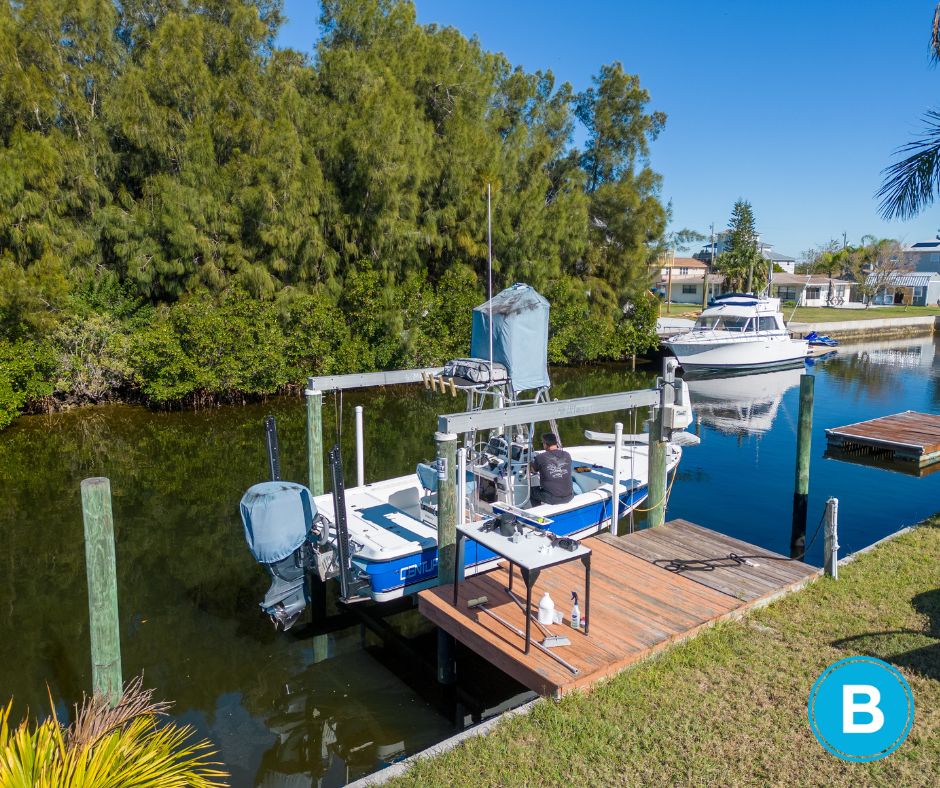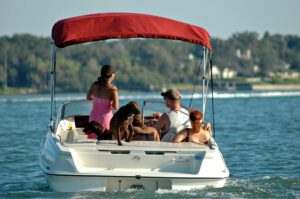
Boating season might wrap up in other places, but in Florida, boating season lasts all year long. Because of our surplus of boats in the state, our waterways are often crowded. The Chain of Lakes in Polk County, Tampa Bay, and the Alafia River are popular hot spots for boating and water sports. Unfortunately, they are also the scene of many boating accidents due to the crowds.
Boats piled up quickly near the Williams Park boat ramp and the US 41 bridge each weekend, causing tight spaces and frequent collisions. Boaters would put down actors in droves, clogging the areas with “parked” boats and making it almost impossible for other boats to get through. A new navigation channel is changing that.
In September, the Hillsborough County Marine Safety Division finished construction on a brand new 650-foot long and 150-foot wide channel. Now open to local boaters, it keeps the area clear of congestion. Boaters can now easily navigate the area, and accident numbers are expected to go down.
Unfortunately, boat “traffic” isn’t the most common cause of boating accidents in Florida.
What are the main causes of boating accidents in Florida?
Speeding, distraction, lack of experience, and alcohol stand behind many boating accidents in Tampa Bay.
Today, most people recognize the dangers of drinking and driving a car. What many fail to realize is that drinking while operating a boat is equally dangerous. Aside from Florida law (stating that drinking and driving a boat is illegal), there are other reasons you should avoid operating your boat while, or after, drinking.
According to the BoatU.S. Foundation, using alcohol can cause:
- Affected balance
- Altered judgment
- Slow reaction times
- Vision impairment
Each of these on its own makes operating a vehicle of any kind (including a boat) dangerous. When combined, they are almost certainly deadly.
What impact do boating accidents have on Florida?
Last year, the US Coast Guard reported over 4,000 accidents on the water across the country. Tragically, over 600 victims’ lives were lost in these accidents, and thousands more were injured. Furthermore, there was a whopping $55 million in property damage. According to the Florida Fish and Wildlife Conservation Commission (FWC), in Florida alone
Experts recorded over 700 boating accidents in one year.
These included collisions with other boats/watercraft and collisions with fixed objects. 
Victims reported more than 450 injuries.
These injuries included everything from concussions and lacerations to life-altering conditions like TBIs (Traumatic Brain Injuries) and spinal cord injuries.
65 fatalities occurred.
The most common cause of death in boating accidents is drowning. Sadly, boaters fail to enforce life-jacket wearing on their boats, and victims lose their lives as a result. If you’ll be on the water, always wear a life jacket, regardless of size or age.
Locals experienced over $16 million in property damage due to boating accidents.
Docks, other boats, city or county property, and more can be damaged in boat collisions.
What should I do if I (or my family member) were injured on the water?
First and foremost, you should seek any needed medical attention in the moments immediately following the accident. If able, take photos, record video of the scene, etc. This helps both with potential insurance claims and your lawyer. Report boating accidents to either FWC or the sheriff/police department of the county where the accident happened. Florida law requires boaters to report accidents causing a death or disappearance, a serious injury, or over $2,000 in property damage.
After you’ve reported your crash to emergency services, call Brooks Law Group. Our experienced attorneys can fight for the compensation you deserve after a boating accident. Contact us here or call us directly at 1-800-LAW-3030. You’ll get a free evaluation of your case with no obligation! Brooks Law Group is ready to help you with your boating accident.













